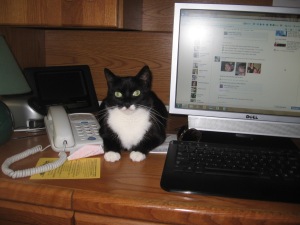I have long thought about writing on this subject but have been reticent about “outing” myself. But that has changed. In January of this year, 2012, a young woman who I was friends with lost her battle with alcohol and prescription medication. A little bit about her: She was 31 years old at the time of her death. I had known her for 3 years at that time and we had become close, closer than I even knew. She came from a good family of substantial means. She was a Yale graduate and a navy veteran. She was tall, lean, well-liked, and by all outward appearances, in great health. She was very athletic, able to run a marathon. But in the end, all that was simply window dressing to a serious problem.
I have been a member of Alcoholics Anonymous for almost 14 years now. I could easily have convinced myself that I did not have a problem with alcohol as I was never an everyday drinker, I had a job that I had held for a long time, and by all outward appearance, I was doing pretty well. That just was not the case. My inner turmoil was tremendous and had been that way since I was a teenager. Whenever I felt an unpleasant emotion or unpleasant situation descending upon me, I would use alcohol at a means to blunt those feelings. I also used the excuse of drinking to be “more socialable.” And I really believed that was true! But the truth was, I was failing to deal with my fears by covering them up which allowed me to do things that scared me. That is, by any stretch of the imagination, not a healthy way to deal with problems. In point of fact, it only serves to make the problems worse.
When I stopped drinking my only reason was to gain peace and sanity, neither of wich I had. I did not believe I had an alcohol problem, but if the Alcoholics Anonymous program would help me with a legion of other problems I had, I would do it. Fourteen years later I can say that regardless of what I believed all those years ago, my life today is fabulous because I made a commitment to stop drinking and to closely adhere to this 12-step program. For as much as I hated life back then, I love it now.
My young friend who died early this year had a future as bright as anyone could want. But I firmly believe she had some inner demons that kept dragging her down. And within those demons was one in particular that told her that because she was so young and so healthy she could have another drink. But that was the big lie. For whatever reason, her last drink killed her. And the truth is, it did not have to be that way.
I remember my 20s. I was drinking hard and it never occurred to me that I either had a problem or that my drinking could have killed me. It was not that I felt invincable, but that I refused to consider my actions as being all that dangerous to my own health and welfare. Worse, it never occurred to me that it was having a hugely negative effect upon those people in my life, but it did.
I see young people coming into Alcoholics Anonymous all the time, as young as 17 I have seen. It is extremely difficult for those people to believe that it would be best if they never took another drink. Their concept of drinking is that it is something everyone does and that they are going to be just fine. They cannot imagine being out with their friends who are drinking and not drinking themselves. They are victims to peer pressure and their own faulty thinking.
Here is something to consider. Have you ever made the statement, even to just yourself, that you need a drink or that you have to have a drink? Most people would have to honestly answer that question with a “yes.” The follow-up question necessarily has to be “why?” Almost without exception, if a person is being entirely honest, the answer is going to come along the lines of having to deal with uncomfortable feelings or situations. And then the honest person must ask themself how taking a drink is going to help that situation. And the honest answer is, it will not! The strong sober person deals with those feelings and situations head-on, without feeling it necessary to anaesthetizing themself. They will actually view taking a drink as getting in the way of good progress.
Webster’s Dictionary defines sober as “straightforward: serious; plain or subdued; devoid of frivolity, exaggeration, or speculative imagination.” I particularly like that last definition because it harkens unto “magical thinking.” That is, the belief that if I take a drink I will somehow be better at something. That, of course, is totally illogical, but that is also very common thinking. Everyone does it but it is never right.
People in their 20s, the “Gen-Y” people, are prone to this magical thinking mostly because they lack the experience of life to tell them that the truth lies somewhere else. It is not their fault. It is just something every person must go through. It is really easy for a person in their 20s to deny that they have any problem with alcohol because, as the thinking goes, they are too young to have such a problem. That, of course, is pure b.s. A problem drink is any drink that is taken in lieu of something else.
Anther thing, while people in their 20s and 30s may not believe they are immortal, they usually believe they have a lot of time in front of them and that they need not concern themselves with some of their immediate problems. That somehow, those problems will work themselves out or that they will simply grow out of them or that they are just going through a phase. All of this happens when anyone, regardless of age, is in denial about their root problems.
I feel certain my friend who died was in denial about her vulnerability to her problems with alcohol. I think everyone uses denial at some time in their life, if not frequently, because a problem or situation feels overwhelming and that somehow, by denying the problem, it will eventually go away or fix itself. From my own personal experience, I can tell you absolutely that this is just a big lie we tell ourselves. It is never ever true.
To those people who are in their 20s and 30s I ask that you consider if you have ever wondered if you have a drinking problem, or if it has ever been suggested that you might have one, that you take that extremely seriously. Consider if a doctor suggested you might have skin cancer, would you ignore that in the hope that it would just go away? Of course not! Problem drinking is a medical problem in exactly the same way. It is also, by definition, a spiritual problem. I promise that those of you in your 20s and 30s, if you were to go to an alcoholics anonymous meeting you will not be in the presence of a bunch of old people who are one step removed from homelessness, although such people certainly attend such meetings. In fact, you will find there is an entire portion of Alcoholics Anonymous devoted to young people that includes meetings that are mostly attended by young people. There is a whole group of young people in Alcoholics Anonymous who refer to themselves as “never having had a legal drink,” and yet they have stayed away from alcohol for many years.
If you think you have a problem and want more information, feel free to contact me via email here, or, you can always find a central office of Alcoholics Anonymous listed in phone books and on the Internet regardless of where you live.
My hope in posting this it that it will give pause to young people to at least consider how they drink. Even the slightest suspicion is worthy of attention.



